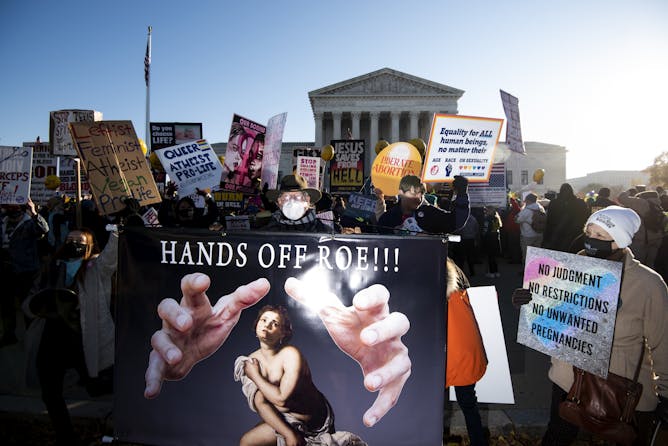|
I love facts. As an investigative reporter, nothing made me more excited than digging through obscure government documents and finding hidden facts. Facts are what we look for as journalists – discovering them and then verifying them. We do that so you, as citizens, can hold your government leaders accountable for what they’re actually doing, not simply what they say they’re doing.
But facts are not beloved by everyone, writes Taylor Dotson, who researches the role of truth in a democracy. In fact (sorry), writes Dotson, in our era of politicians spewing conspiracy theories and rank untruth for partisan gain – and millions of Americans who believe and amplify those lies via social media – facts are not the cure for the rising political antagonism these falsehoods engender.
“Fact-checking, the rigorous independent verification of claims, is often presented as vital for fighting falsehoods,” writes Dotson. “Fact-checking may be vital for media literacy, discouraging politicians from lying and correcting the journalistic record,” says Dotson, but that very effort to confirm facts may, instead, worsen political divisions.
Yes, that’s a downer. But Dotson has a surprisingly hopeful ending to his story.
|

You’re not the only one having trouble discerning the truth.
nicoletaionescu/iStock/Getty Images Plus
Taylor Dotson, New Mexico Tech
Fact-checking risks oversimplifying and distorting Americans’ political conflicts, while not actually helping people find ways to work together productively.
|

Will the U.S. be torn apart by civil war?
Paul Sancya/AP photos
Ore Koren, Indiana University
Despite growing public discussion of the risk of civil war in the US, a political violence scholar says widespread civil strife is unlikely to happen – but other political violence is more likely.
|

Reproductive rights are at the center of the Dobbs v. Jackson Women’s Health Organization case before the Supreme Court.
Bill Clark/CQ-Roll Call, Inc via Getty Images
Emily M. Godfrey, University of Washington
The Supreme Court is considering a case that could restrict abortions. One argument is that birth control eliminates the need for abortion. But contraception doesn’t offer an easy fix.
|
|
|
-
Timothy Zick, William & Mary Law School
Stewart Rhodes of the Oath Keepers, has been charged with seditious conspiracy over the attempted insurrection. A constitutional law scholar outlines why that may set a bad precedent.
-
Vicki Crawford, Morehouse College
In his brief life, Martin Luther King Jr. had a variety of interests that informed his work as leader of the civil rights movement. His alma mater has collected some objects that tell his story.
-
Atal Ahmadzai, St. Lawrence University; Faten Ghosn, University of Arizona
Four months after the Taliban regained control of Afghanistan, a clearer picture of their rule is emerging. Despite public assurances, the Taliban continue to violate human rights.
-
Leslie Lenkowsky, IUPUI
Proponents of using the child tax credit to alleviate poverty need to reach an agreement with those who insist that it must encourage low-income parents to work.
-
Derek T. Muller, University of Iowa
Concerned about problems in counting Electoral College votes that determine the next president, lawmakers are considering changes to the Electoral Count Act. What is the act, and what’s wrong with it?
-
Michael J. Saks, Arizona State University
Brown v. Board didn’t overrule ‘separate-but-equal’ but it had that end. A law scholar explains how there is a lesson there for conservatives on today’s Court looking to end abortion in the US.
|
|